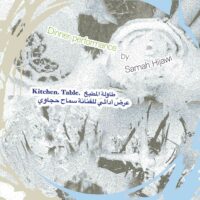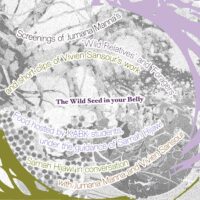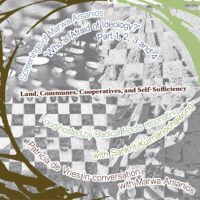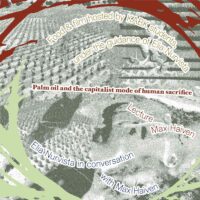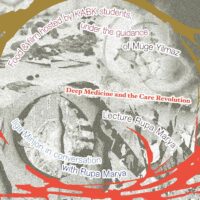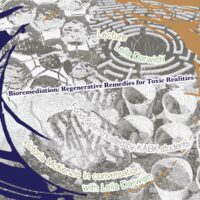The next cycle of this program will continue to dwell in many gardens and kitchens, as we try to collectively re-imagine how the current world food system could be decolonized one grain of sand (or soil, or mud…) at the time.
How can food, seed and land sovereignty and justice look like in a world that is almost completely enclosed but in which also alternatives are emerging through the cracks?
Every session will celebrate a specific food culture and land practice that unearth community (her)stories of struggle and resistance within a web of life that ultimately connects all continents, for the love of soil. Foods such as Za’atar, (heirloom) seeds, palm oil, wildly foraged plants and pollution remediating mushrooms are not only carriers of personal, social and political issues of concern, but also guides and kindred companions throughout this exploration.
For these same entangled and muddy reasons, we have invited this cycle the kindred Bakudapan Food Study Group to co-edit the Earth Craft zine, that hopefully inspires further self-study of this magically expansive subject matter that reminds us that everything in this world is food and food for something else.
Erika Sprey
Head and curator of the Studium Generale of the Royal Academy of Art, The Hague (KABK)
When water mixes with soil, an expansive mud emerges, the magical stuff of which many creation stories are made. From the ancient Sumerians to contemporary Yoruba, the Gods created their peoples from clay, speaking to the need of fertile, habitable land for human subsistence: you are what you eat from. Sometimes in these stories, either the mud people, mute and blind, would disintegrate too easily at the slightest touch, or it needed to be kept in check when becoming too powerful and godlike in its excessive expansiveness. In either case, the missing and regulating ingredient would be a certain food (f.e. a drop of milk) or a crop (f.e. maize) planting sense and spirit into humans who were now finally able to place themselves in a right, reciprocal relation to the Gods and the land.
Today, supermarket racks are not transmitting reverence or reciprocity, but subliminal marketing messages that present food as an industrially produced commodity. In the West, approximately 80% of all food is produced by 5 large corporations and over 90% of the grain trade worldwide is controlled by
Underneath this fragmentation of the industrial food chain looms a much more fundamental disconnect that would have every part of nature as 'separable from the rest: the seed from the soil, the soil from the plant, the plant from the food, and the food from our bodies’ (Who Really Feeds the World? Shiva, 2016), that are suffering all kinds of diseases as the result of an impoverished industrialized gut microbiome. Faced with the alarming social, ecological and bodily imbalances that this disjointed, atomized way of thinking, producing and eating is causing - and that is also more fragile than we might think - many people are realizing that a sharp U-turn is needed in our care for the soil, if we are to avert a global implosion of all systems, human and more-than-human alike.
Bringing back these concerns to our material, daily realities, how are we to re-soil and re-seed our body minds in a day
The gap between the immensity of the challenge that lies ahead, and the seemingly smallness of our actions can feel disheartening at times, especially since we often have no choice than to ingest neoliberal spirits on a daily base, imprinting a mechanistic notion of food into our cell memory that is already thoroughly permeated by late capitalist modes of consumption. Nonetheless, crucial nodes of awareness and resistance are gaining strength everywhere, countering a system that reduces food to a set of ‘scientific’ and therefore ‘objective’ nutritional values that have been (ab)used to introduce, for instance, trans-national trade deals and genetically modified crops, to the detriment of local, ancestral varieties. Less people seem to buy into the too good to be true promises of the so-called green economy and the often (hidden) political agendas driving many flashy green washing practices, such as some ‘conservation’ laws that break ancestral ties locals may have to the land. Lastly, concrete practices such as cooking, gardening and local farming are increasingly (re)valued as full, dignified ways to earth craft human soil relations while imagining, as Jumana Manna writes, ‘alternative, affirmative care structures that remain, within and beyond the current reality, aligned towards plant and human life alike.’
The next cycle of this program will continue to dwell in many gardens and kitchens, as we try to collectively re-imagine how the current world food system could be decolonized one grain of sand (or soil, or mud…) at the time. How can food, seed and land sovereignty and justice look like in a world that is almost completely enclosed but in which also alternatives are emerging through the cracks? Every session will celebrate a specific food culture and land practice that unearth community (her)stories of struggle and resistance within a web of life that ultimately connects all continents, for the love of soil. Foods such as Za’atar, (heirloom) seeds, palm oil, wildly foraged plants and pollution remediating mushrooms are not only carriers of personal, social and political issues of concern, but also guides and kindred companions throughout this exploration. For these same entangled and muddy reasons, we have invited this cycle the kindred Bakudapan Food Study Group to co-edit the Earth Craft zine, that hopefully inspires further self-study of this magically expansive subject matter that reminds us that everything in this world is food and food for something else.
Erika Sprey
Curator of Studium Generale of the Royal Academy of Art, The Hague (KABK)
"A food system that destroys nature’s economy - the ecological foundation on which food production rests - cannot feed the world. An agricultural system designed to displace small-scale farmers, who form the social foundation of real farming, cannot feed the world. Every aspect of industrial agriculture is rupturing the fragile web of life and destroying the foundations of food security."
For latest updates and full program, check our Instagram account @earthcraftKABK
